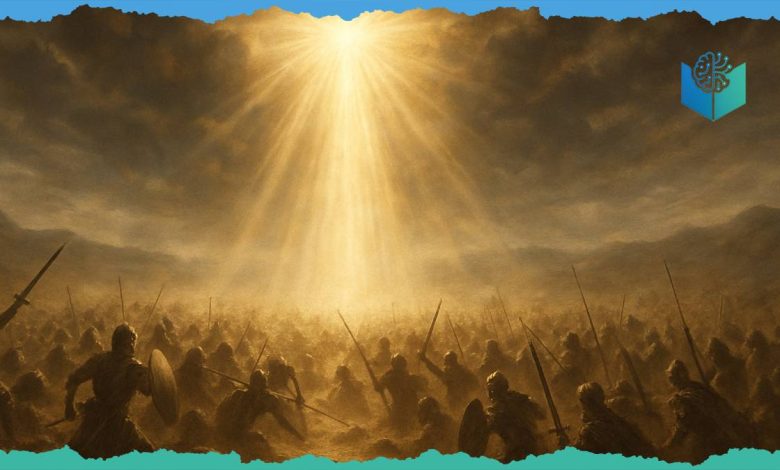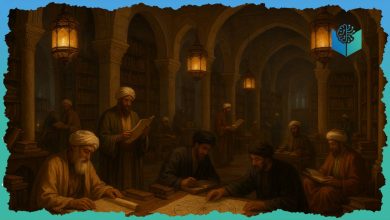The Battle of Badr

The Battle of Badr stands as one of the most defining events in Islamic history. It was not merely a confrontation between two armies but a spiritual and moral trial that shaped the future of the Muslim community. This event, often remembered as the first battle in Islam, represents the victory of truth over falsehood and the triumph of faith against overwhelming odds.
The story of Badr continues to inspire millions of Muslims who reflect on its lessons from Badr and the steadfastness of those early believers. In this article, we’ll explore the history of the Battle of Badr, its significance, and the many ways it continues to shape the Seerah battles and the understanding of faith in everyday life.
The Historical Background of the Battle of Badr
To understand the Battle of Badr, one must first know the context of early Islam. When the Prophet Muhammad (peace be upon him) began preaching the message of monotheism in Mecca, the Quraysh tribe opposed him fiercely. The message threatened their social and economic structure, which revolved around idol worship and tribal pride.
After years of persecution, the Prophet and his followers migrated to Medina, where they found freedom to practice their faith. Yet the Quraysh, still hostile, sought to eliminate Islam completely. The tension between Mecca and Medina soon erupted into open conflict, and that conflict was Badr.
The Caravan and the Call to Battle
The immediate cause of the first battle in Islam was a Qurayshi trade caravan returning from Syria, led by Abu Sufyan. The Muslims aimed to intercept it as compensation for the wealth and property they had lost in Mecca. However, Abu Sufyan learned of the plan and sought help from Mecca. In response, the Quraysh mobilized an army of about 1,000 men, while the Muslims had only around 313.
This numerical difference alone reveals one of the great lessons from Badr that true victory comes from trust in Allah, not in numbers or weapons.
The Day of Badr: Faith Versus Force
The two armies met near the wells of Badr, about 80 miles southwest of Medina. The Muslims, though few and poorly equipped, stood firm in their belief that Allah would aid them. The Qur’an beautifully captures this moment of faith and divine support:
“And already had Allah given you victory at Badr while you were few in number. Then fear Allah; perhaps you will be grateful.”
(Surah Aal-Imran, 3:123)
This verse reminds believers that the significance of Badr lies not only in military success but also in spiritual victory, the affirmation that faith can overcome fear when anchored in divine guidance.

The Angels at Badr
According to the Qur’an, Allah sent angels to support the believers during the battle:
“When you asked for the help of your Lord, and He answered you, ‘Indeed, I will reinforce you with a thousand from the angels, following one another.’”
(Surah Al-Anfal, 8:9)
This divine assistance became a source of comfort and courage for the Muslims. It also highlights that success, in Islam, is not achieved through force alone but through reliance on Allah’s decree and unwavering faith, a principle deeply rooted in the Seerah battles that followed.
The Outcome and Victory
Despite their smaller numbers, the Muslims achieved a decisive victory. Many key leaders of Quraysh were killed, and others were taken captive. The outcome of the Battle of Badr shocked the Arabian Peninsula and established the Muslims as a rising power.
This victory marked a turning point in early Islam, both politically and spiritually. It was proof that Allah’s promise of help to His faithful servants is true, and that the mission of the Prophet Muhammad (peace be upon him) was divinely supported.
Mercy After Victory
Even after the victory, the Prophet demonstrated mercy and compassion, qualities that form the essence of the Islamic character. The prisoners of war were treated humanely; some were released in exchange for teaching literacy to the people of Medina.
This act teaches one of the greatest lessons from Badr, which is Islam values justice and mercy even in moments of triumph.
Lessons from Badr: Spiritual and Moral Reflections
The Battle of Badr offers timeless guidance that extends beyond its historical context. It carries deep spiritual and ethical insights for all believers.
1. Trust in Allah (Tawakkul)
The Muslims went to battle with almost no armor and minimal weaponry, yet their trust in Allah was complete. This reliance on divine help remains one of the core lessons from Badr. It reflects the Qur’anic principle that true power lies in faith, not material strength.
2. Unity and Obedience
The victory at Badr came because the believers followed the Prophet’s leadership and remained united. This unity of purpose is a recurring theme in the Qur’an and an essential lesson for all who seek to follow the Qur’an lifestyle.
3. Gratitude After Victory
After the battle, the Prophet reminded his followers to remain humble and grateful. As the Ayaat reveal, gratitude is the key to spiritual success:
“If you are grateful, I will surely increase you [in favor].” (Surah Ibrahim, 14:7)
These lessons still resonate deeply about Islam today, reminding every believer to face life’s challenges with humility, unity, and gratitude.

The Significance of Badr in Islamic History
The history of the Battle of Badr cannot be separated from the broader Seerah battles that followed, such as Uhud and Khandaq. Each of these moments was part of a divine plan to strengthen the Muslim Ummah and refine its faith.
A Turning Point for the Ummah
The victory at Badr boosted the morale of the Muslims and spread their reputation across Arabia. Many tribes began to take Islam seriously, realizing that it was more than a passing movement; it was a divinely guided mission.
The Prophet’s Leadership
The Battle of Badr also demonstrated the wisdom and strategy of the Prophet Muhammad (peace be upon him). His consultation with his companions before battle showed the value of shura (mutual consultation), a principle that continues to shape Muslim leadership models today.
Lessons from the Seerah Battles
When studying the Seerah battles, including Badr, Uhud, and Khandaq, one sees recurring lessons of faith, patience, and perseverance. Badr stands out as the foundation of these struggles, the moment when the early Muslim community realized that Allah’s help is near for those who remain steadfast.
Badr as a Symbol of Divine Justice
The significance of Badr lies in the fact that it symbolized divine justice. The persecuted became victorious, and truth prevailed. The Qur’an describes this moment beautifully:
“And Allah made it not but good tidings, so that your hearts would be assured thereby. And victory is not but from Allah.”
(Surah Al-Anfal, 8:10)
This verse reflects that every victory in Islam, including at Badr, is ultimately an act of divine mercy, a reminder that all outcomes rest with Allah alone.

The Relevance of Badr in Today’s World
Even today, the Battle of Badr holds valuable insights for Muslims. It teaches the importance of patience, preparation, and prayer in overcoming adversity. Every believer faces personal battles, challenges of faith, hardship, and morality, where the lessons from Badr serve as timeless guidance.
Faith as the Ultimate Weapon
In the modern world, Muslims are reminded that their greatest strength is not wealth or power but faith. Living with conviction and adhering to Quranic guidance is how one continues the legacy of those who fought at Badr.
The Quranic Message of Hope and Perseverance
Throughout the Qur’an, believers are encouraged to stay firm in the face of trials. The events of Badr demonstrate this principle vividly: a small group of faithful believers, armed with little more than courage and trust in Allah, achieved what seemed impossible.
“How many small companies have overcome a large company by permission of Allah. And Allah is with the patient.”
(Surah Al-Baqarah, 2:249)
Conclusion: The Eternal Lessons of the Battle of Badr
The Battle of Badr remains a shining example of faith in action. It wasn’t only the first battle in Islam but a profound moment that tested and strengthened the believers’ trust in Allah. Its significance goes beyond the battlefield; it lives in every act of courage, sincerity, and reliance upon God.
By studying Badr, we connect with the essence of the Seerah battles and the foundations of faith itself. It reminds every believer that Allah’s help is near for those who remain patient and grateful. As the Qur’an teaches,
“Indeed, Allah is with those who fear Him and those who are doers of good.” (Surah An-Nahl, 16:128)
To explore more historical insights and Quranic reflections, visit ayaat.ai, a trusted platform for understanding the prophets of God and the timeless wisdom of the Qur’an.
Q&A
What happened at the Battle of Badr?
The Battle of Badr was the first major battle in Islam, where a small group of Muslims defeated the larger Quraysh army near Medina in 624 CE.
Was the Battle of Badr 313 vs 1000?
Yes, around 313 Muslims faced approximately 1,000 Quraysh soldiers, showing the strength of faith and divine support over numbers.
What miracle happened in the Battle of Badr?
Muslims believe angels were sent by Allah to support the believers, a divine miracle that turned the tide of battle.
How did Muhammad win the Battle of Badr?
The Prophet Muhammad (peace be upon him) won through strategic planning, unity among believers, and unwavering faith in Allah’s help.





